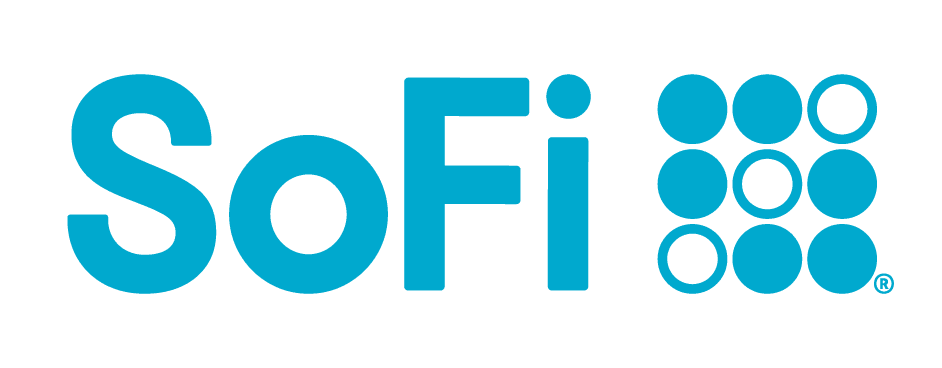What Is an Unsecured Loan?
In the world of personal finance, unsecured loans play a crucial role in providing financial flexibility to borrowers.
Best Rated Unsecured Loans:
- LoansUnder36 – Best for Bad Credit
- Low Credit Finance – Best for Easy Approval
- 5kFunds – Best for Multiple Loan Offers
- Your Premier Lending – Best for Good Credit
Understanding Unsecured Loans
Unsecured loans are financial products that don’t require collateral, such as a home or car, to secure the loan.
This type of lending is based primarily on the borrower’s creditworthiness and ability to repay.
Key Features of Unsecured Loans:
- No collateral required
- Often called ‘signature loans’
- Typically higher interest rates than secured loans
- Based on creditworthiness and income
- Includes personal loans, student loans, and credit cards
Unsecured loans are often referred to as “signature loans” because the borrower’s signature and promise to repay are the primary requirements, assuming they meet the lender’s criteria.
Important Note:
Unsecured loans typically carry higher interest rates compared to secured loans. This is because lenders assume more risk when approving a loan without the backing of any assets.
Unsecured Lenders Comparison
| Company | Overall Rating | |
|---|---|---|
recommended

| Explore more | |
recommended

| Explore more | |
recommended

| Explore more | |
recommended

| Explore more | |
recommended

| Explore more |
| Company |
|---|
recommended

|
recommended

|
recommended

|
recommended

|
recommended

|
| Get Started |
|---|
| Explore more |
| Explore more |
| Explore more |
| Explore more |
| Explore more |
| Company | Overall Rating | Get Started |
|---|---|---|
recommended

| Explore more | |
recommended

| Explore more | |
recommended

| Explore more | |
recommended

| Explore more | |
recommended

| Explore more |
How Unsecured Loans Work
When issuing unsecured loans, lenders conduct a thorough evaluation of the borrower’s financial profile. This assessment typically includes:
- Credit score and history review
- Employment status and income verification
- Analysis of current debt-to-income ratio
If any of these factors don’t align with the lender’s requirements, the loan application may be denied.
Common Types of Unsecured Loans
Personal lines of credit
Home improvement loans
Student loans
Examples of Unsecured Personal Loans
Unsecured loans generally involve minimal paperwork and offer a quick approval process. Additionally, borrowers don’t risk losing any property since there’s no collateral involved.
Quick Tip:
Use the Financer.com loan comparison tool to compare 304 lenders. See immediate results without affecting your credit score.
It’s important to note that unsecured loans are best suited for short-term emergencies and should not be considered a solution to serious financial troubles.
Advantages and Disadvantages of Unsecured Loans
No collateral required
Quick access to funds
Competitive rates for borrowers with good credit
Less borrowing restrictions
Advantages of Unsecured Loans
Lower borrowing limits
Higher interest rates for low credit scores
Stricter approval process
Disadvantages of Unsecured Loans
Secured vs Unsecured Loans: Understanding the Difference
Secured loans differ from unsecured loans in that they require assets as security for the loan. This fundamental difference impacts various aspects of the loan:
| Feature | Secured Loans | Unsecured Loans |
|---|---|---|
| Collateral | Required | Not required |
| Approval Process | Often easier | More stringent |
| Interest Rates | Generally lower | Typically higher |
| Risk to Borrower | Can lose collateral | No asset at risk |
How to save $1,190.00 on your loan
The price difference for a $500.00 loan in 90 days is $1,190.00.
How to Qualify for an Unsecured Loan
To minimize risk, lenders carefully evaluate several factors when considering an unsecured loan application. Here’s what they typically look at:
1. Your Credit Report
Lenders review your credit report to assess your credit management skills, including:
- Payment history
- Credit utilization
- Types of credit accounts
Credit Score Tip:
Borrowers with credit scores of 700 or higher typically qualify for the best interest rates on unsecured loans.
2. Your Assets
Although unsecured loans don’t require collateral, lenders may still consider your assets. Substantial savings or investments can indicate financial stability and lower risk.
3. Your Income
Lenders assess your income to ensure you can comfortably manage loan repayments. They also calculate your debt-to-income (DTI) ratio:
How to Calculate Your Debt-to-Income (DTI) Ratio
Your DTI is an important factor in loan approval. Here’s how to calculate it:
Sum Monthly Debt Payments
Add up all your monthly debt payments (e.g., existing loans, credit cards).
Determine Gross Monthly Income
Calculate your total monthly income before taxes and deductions.
Divide Debt by Income
Divide your total monthly debt by your gross monthly income.
Convert to Percentage
Multiply the result by 100 to get your DTI percentage.
Example:
If you have $600 in monthly debt payments and a gross income of $2,000 per month, your DTI would be:
($600 / $2,000) x 100 = 30%
Most lenders prefer a DTI of 36% or less, though some may approve up to 46% for certain loan products.
Unsecured Loans for Bad Credit
If you have a low credit score, you may still have options for unsecured loans. Some lenders specialize in offering loans to borrowers with less-than-perfect credit. However, it’s important to be aware of the potential drawbacks:
- Higher interest rates
- Lower loan amounts
- Shorter repayment terms
Important:
Always compare loan offers from multiple lenders to find the best terms, interest rates, and fees, especially if you have bad credit.
Unsecured Installment Loans with No Credit Check
Some lenders offer unsecured installment loans with no hard credit check during the pre-qualification process.
This allows you to see potential loan offers without impacting your credit score. However, be cautious with these types of loans, as they often come with higher interest rates and fees.
Frequently Asked Questions About Unsecured Loans
Can I get an unsecured loan with bad credit?
Yes, it’s possible to get an unsecured loan with bad credit, but you may face higher interest rates and lower loan amounts. Some lenders specialize in bad credit loans.
How quickly can I get approved for an unsecured loan?
Many online lenders offer quick approval processes, sometimes within minutes. Funds can often be deposited into your account within 1-3 business days after approval.
Are there any alternatives to unsecured loans?
Yes, alternatives include secured loans, credit cards, or borrowing from friends or family. Each option has its own pros and cons, so consider your specific financial situation before deciding.
How does an unsecured loan affect my credit score?
Applying for an unsecured loan typically results in a hard inquiry on your credit report, which may temporarily lower your score. However, making timely payments on the loan can positively impact your credit score over time.
Understanding unsecured loans is crucial for making informed financial decisions. Whether you’re considering a personal loan, student loan, or credit card, it’s important to weigh the pros and cons and compare offers from multiple lenders.
Remember, while unsecured loans can provide quick access to funds, they should be used responsibly and not as a long-term solution to financial difficulties. Always consider your ability to repay before taking on any new debt.


